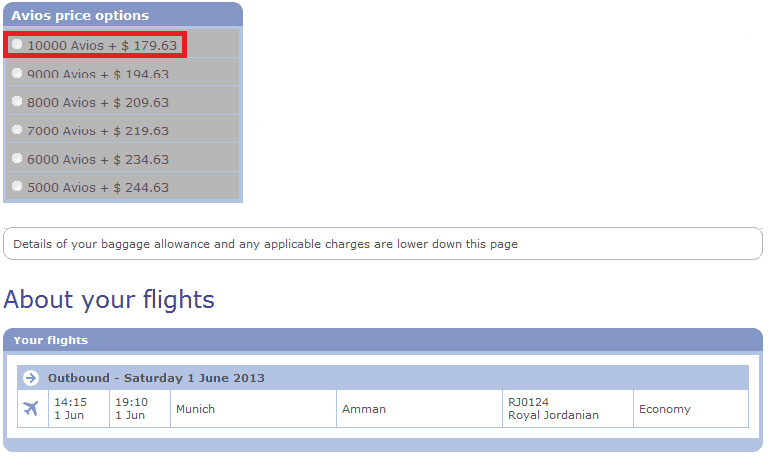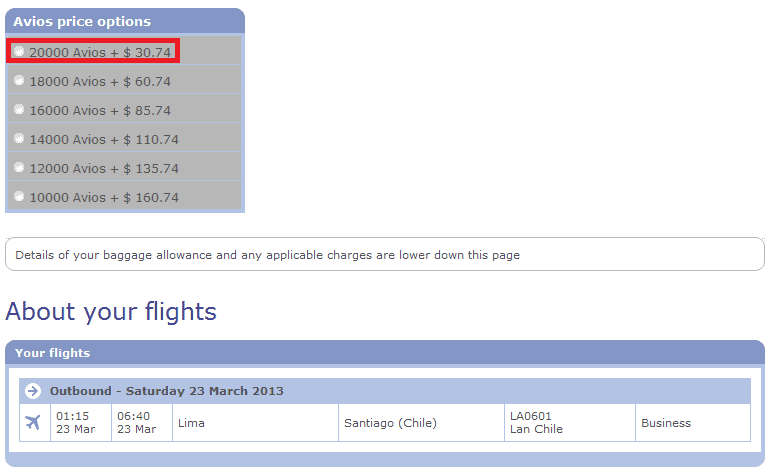MileValue is part of an affiliate sales network and receives compensation for sending traffic to partner sites, such as CreditCards.com. This compensation may impact how and where links appear on this site. This site does not include all financial companies or all available financial offers. Terms apply to American Express benefits and offers. Enrollment may be required for select American Express benefits and offers. Visit americanexpress.com to learn more.
Note: Some of the offers mentioned below may have changed or are no longer be available. You can view current offers here. All values of Membership Rewards are assigned based on the assumption, experience and opinions of the MileValue team and represent an estimate and not an actual value of points. Estimated value is not a fixed value and may not be the typical value enjoyed by card members.
There is a trick that can be used to get free stopovers outside the USA on American Airlines awards in certain situations, and I don’t just mean 23 hour layovers. Most people probably think that’s impossible, since one of the four rules all AA stopovers must comply with is:
1) Stopovers must occur at the North American International Gateway City. The North American International Gateway City is the last city in North America you fly out of on awards to other regions from North America. On awards from other regions to North America, the North American International Gateway City is the North American city in which you first arrive. North America is defined as the 50 US states, Canada, Mexico, Bermuda, Bahamas, and the Caribbean.
So the only official places you can get stopovers on AA awards are North American cities from which there are international flights on AA or its partners; a complete list of such cities can be found here.
But there are in fact two ways to get free stopovers (or occasionally stopovers that save miles) on AA awards outside the USA:
- Book two AA awards, one from your origin city to the stopover city, one from the stopover city to your destination.
- Book one AA award, from your origin city to the stopover city, and one Avios award, from the stopover city to your destination.
I’ll give an example: a oneway award from Chicago to Amman, Jordan with AA miles would cost 45,000 AAdvantage miles in economy class according to the AA award chart. And imagine your dream trip has a stopover in Munich on the way to Amman; you’re out of luck since AA awards only allow stopovers in North America.
But instead of booking one AA award from Chicago to Amman and giving up our dream stopover in Munich, we can do a lot better by booking two separate awards: an AA award from Chicago to Munich at 20,000 AA miles (during off peak season) and an Avios award from Munich to Amman for 10,000 Avios!
Now instead of spending 45,000 AAdvantage miles to go Chicago to Amman without getting any stopovers, we are paying 20,000 AAdvantage miles and 10,000 Avios to get from Chicago to Amman with a stopover in Munich, a huge savings! Our stopover is actually saving us 15,000 miles!
How would I actually go about booking this? First I would find availability on the AA award, in this example, the award from Chicago to Munich. I’d probably look to fly Chicago to Berlin to Munich on airberlin since I’d avoid the surcharges of flying BA transatlantically, and airberlin has some decent award availability. I would call AA and place this award on a five day hold.
Then I would go to BA.com and find the Munich to Amman award. I’d probably look to fly Royal Jordanian’s direct flight. That flight prices out to 10,000 Avios and $179.
 After purchasing the Avios award, I would call AA back and purchase the held award from Chicago to Munich. The reason for this order is to ensure that we either get both awards or neither.
After purchasing the Avios award, I would call AA back and purchase the held award from Chicago to Munich. The reason for this order is to ensure that we either get both awards or neither.
Benefits
- A stopover outside of America–in Munich in this example–that wouldn’t otherwise be possible on an AA award.
- Saving 25,000 AAdvantage miles for the cost of 10,000 Avios.
Drawbacks
- It takes more time to book two awards than one.
- Avios awards have hefty fuel surcharges when they aren’t within the western hemisphere. The MUC-AMM ticket had a $179 cash outlay.
Let’s talk about that second drawback: Avios’s surcharges. There are two ways to avoid them. The first is to use two AAdvantage awards instead of one AAdvantage award and one Avios award. In the Chicago to Munich to Amman example, we could book Munich to Amman with AAdvantage miles also.
I priced Munich to Amman out over the phone, and it would cost 20,000 AAdvantage miles and $84.60 (including the $25 AA phone fee). So we would save $95 by using AAdvantage miles, but it would cost 10,000 extra miles. In my opinion 10,000 Avios and $179 is a better deal than 20,000 AAdvantage miles and $85, but booking this trip as two AA awards would save cash compared to booking it as one AA award and one Avios award.
The second way to avoid the BA surcharges that this trick entails is to use this trick on a trip to South America.
For example, imagine you want to fly from New York City to Lima, enjoy a stopover, then continue to Santiago, all in business class. This would be impossible on one AA award, since Lima is outside the USA, making it ineligible as a stopover city on AA awards. The best we could do on one AA award would be New York to Santiago in business for 50,000 AAdvantage miles, omitting Lima entirely.
But with this two-award trick, we can do better!
The first thing I would do is reserve an AA award from JFK-LIM, hopefully in the flat bed business class of the direct LAN flight, for 30,000 AAdvantage miles plus a few dollars in taxes.
Once I had JFK-LIM on hold, I would book an Avios award on LAN from Lima to Santiago in business class.
 The Lima to Santiago flight can be had for 20,000 Avios and $31, which represents unavoidable government taxes. (This segment would be 32,500 AAdvantage miles if we booked through AA, so I would definitely choose Avios for this segment.) With Lima to Santiago booked, I would call AA back and ticket the JFK-LIM segment I had reserved.
The Lima to Santiago flight can be had for 20,000 Avios and $31, which represents unavoidable government taxes. (This segment would be 32,500 AAdvantage miles if we booked through AA, so I would definitely choose Avios for this segment.) With Lima to Santiago booked, I would call AA back and ticket the JFK-LIM segment I had reserved.
We could have spent 50,000 AAdvantage miles for one award from New York to Santiago in business class. But if we had done that, we would not have had a chance for a stopover in Lima. Instead we book two awards for a total of 30,000 AAdvantage and 20,000 Avios and enjoy a free stopover in Lima!
The key to unlocking big savings from this two-award trick is to find airports that are geographically close to each other, but cost very different amounts for AA awards. I gave two examples here– it costs 25,000 extra AA miles to fly economy to the Middle East compared to Europe during off peak times, and it costs 20,000 extra AA miles to fly business to southern South America compared to northern South America.
But there are tons of times when this trick would save a lot of miles or get a free stopover or both. For example, stopping in Europe on the way to North Africa, or stopping in Japan on the way to China.
Another great thing about these free stopovers are that they don’t take away from the ability to get a free stopover at the North American gateway city on the AA award. That means in the Chicago to Amman example, a free oneway can be tacked on to the award, going to Chicago before the main award from somewhere in the USA, Mexico, Canada, or the Caribbean. Likewise in the New York to Santiago example, you could add a free oneway to New York City before the main award!


Have one in LA buddy
soon
as usual, excellent post !!
What do you think about using the points + cash options for avios?
In your Lima to Santiago example, instead of 20000 avios, you could use 10,000 and pay $130 more. Basically buying avios for 1.3 cents each
I will have a separate post on cash and Avios. I didn’t want to go in depth on it in this post, but cash and Avios can be a really good deal in a lot of situations.
loved your post! Thanks for getting me thinkin
Genius!
“The key to unlocking big savings from this two-award trick is to find airports that are geographically close to each other, but cost very different amounts for AA awards”
Not just AA, but any airline’s award – you do lose a little protection if connections are missed, but using distance-based awards such as Lan (SPG trf. partner) or Avios to fill in costly (in miles or dollars) short-hauls is the way to go, especially to bounce around Europe or Asia on One World Partners.
Yeah, it’s best to keep to oneworld carriers since they have a policy to get you to your final destination even if you’re on more than one ticket if all tickets are oneworld.
[…] Yesterday, I posted about getting free stopovers on American Airlines awards outside the USA. Hopefully I opened a few eyes, and I certainly caused some confusion. So I’ll give a concrete example of getting a free stopover outside the USA on an AA award with screen shots. […]
[…] the US on American Airlines flights. Or how about combining an Avios award with an AA award to construct free stopovers outside the US on AA awards or to get almost free oneways to […]
Nice, add on at your valuation of 1.77CPP, for $350 more you can probably can do ORD-MUC-AMM and possibly as far as DEL on RJ, including unlimited stopovers
[…] my miles can get me from BER to TRV on Etihad via American Airlines awards (no free stopover, however, just a long layover so I can still visit Abu Dhabi for a day) as well as domestic flights […]